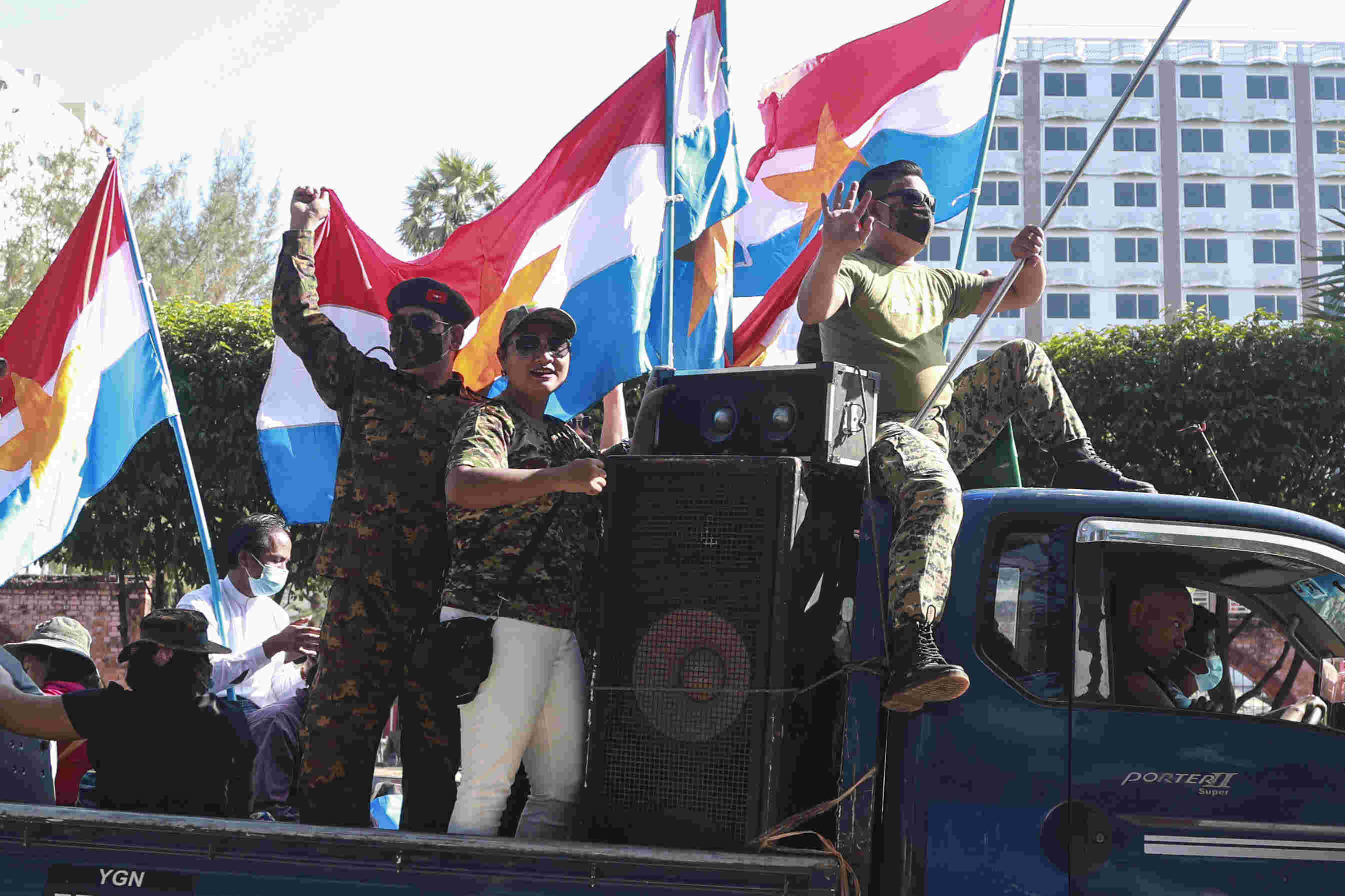Undoing the coup
One year down the line, an urgency for international intervention is felt as Suu Kyi is not well-positioned to counter the might of military

On February 1 this year, Myanmar marked the first anniversary of its takeover in 2021. It is time to take a look at its status now.
Burma (now Myanmar) has always been struck by numerous military takeovers ever since its independence. The ill-fated country never got an opportunity of enjoying a full-fledged democracy or having freedom of speech or dignity of human rights in the last well over seven decades. The intermittent developments — including a mass protest in 1988, long-term movement by the students, sacrificing of innocent lives etc. — could not manifest into any favorable outcome. Even the rise of a pro-democracy and India friendly leader — Aung San Suu Kyi (ASSK) — failed to tackle the onslaught of the military misadventures and excesses committed by the armed forces.
Sadly, the elections held under the military supervision at the end of 2020 could not see ASSK catapulted to power despite her victory. Frustrated by the `unfavorable' results, the armed forces did not recognise the elections and nullified the whole electoral process, eventually leading to February 1, 2021 military takeover without any justification. The military further alleged that Suu Kyi was complicit in large-scale electoral malpractices, rigging and manipulation. Again, not to take any chances, ASSK was put behind the bars and any intervention by the global community, or more specifically by the ASEAN, was starkly ignored by the Myanmar military leadership — thus, extinguishing any ray of hope for return to democracy. It must also be stated aloud that the principal villain of the entire machination has been the military strongman Min Aung Hlaing.
It is time to evaluate which countries seem genuine towards the objective of restoring democracy in Myanmar. After initially showing signs of prevailing over the military to return to status quo ante, China too developed cold feet and became completely oblivious to the happenings, implying that as a dictatorial country itself, it supported the current military regime, as always in the past. China remains a significant neighbour of Myanmar and it would never allow any revival of democracy in Myanmar or for that matter in any country in its neighbourhood. Russia also extended support to the military leadership by supplying arms. As far as Western countries are concerned, there was lots of high-pitched rhetoric but nothing happened on ground as seen by the continued emboldening of the Myanmar armed forces under Min Aung Hlaing. His actions of overlooking any threats from Western quarters are reminiscent of the post General Ne Win era when Generals like Than Shwe and Khin Nyunt reigned with an iron hand at the helm of military junta.
As far as the Indian role is concerned, it displayed immense maturity and balancing act in dealing with the developments in Myanmar. The Indian Foreign Secretary, Harsh Vardhan Shringla paid a crucial visit to eastern neighbour Myanmar towards the end of last year. He commenced his visit with a gift of one million doses of vaccine to Myanmar which was seen as a humanitarian gesture before settling down to the bilateral diplomatic business with Myanmar. The visiting Indian diplomat held critical confabulations with the important members of the Myanmar's State Administrative Council (SAC). Separately, Shringla met with representatives of the political parties including the National League for Democracy (NLD). Importantly, his calling upon Min Aung Hlaing was more than ceremonial. However, the strongman did not allow the visiting FS to meet ASSK in the prison.
In the current context, it is worth mentioning that presently thousands of refugees are sheltered in the Indian state of Mizoram who have the sympathy of the local Mizos who are akin to the Chin ethnic lot of Myanmar. It is also noteworthy that the Chin community is now seen as the major adversary of the military leadership. The Chin National Front (CNF), formally allied with the civilian National Unity Government (NUG), comprises erstwhile legislators in the political arm of the Chins. Likewise, the Arakan Army (AA) has intensified its military capabilities and the current military leadership under Min Aung Hlaing remains wary of these two ethnic groups in particular who pose some challenge to the military ambitions. These assessments are appropriately articulated and corroborated in an Indian mainstream newspaper by Professor Avinash Paliwal, who is now in the faculty of University of London.
Bangladesh does not enjoy a satisfactory relationship with Myanmar due to Myanmar's military action in pushing an exodus of nearly one million Rohingyas into Bangladesh in 2017, causing an immense humanitarian crisis plus economic and security burden on Dhaka. As we continue to examine one year of the military coup in Myanmar, it must be safely stated that as of today, during the last one year, the military junta has brutally exterminated nearly 1,500 innocents and incarcerated over a thousand people protesting against the military rule. The military rule has also seen the Myanmar economy plummeting to an all-time low level. Under these circumstances, it is perhaps imperative that the international community and the world leaders who are seen to be extra active in the affairs of other countries step in rather pro-actively to help provide succour to the ordinary people of Myanmar who have been suffering for no fault of theirs. This is being underlined as the time is running out fast and any hope reposed in ASSK to revive a pro-democracy movement seems remote because of her advancing age, conviction on flimsy charges, and continued imprisonment.
The writer is a retired IPS officer, a security analyst and a former National Security Advisor to the PM of Mauritius. Views expressed are personal



